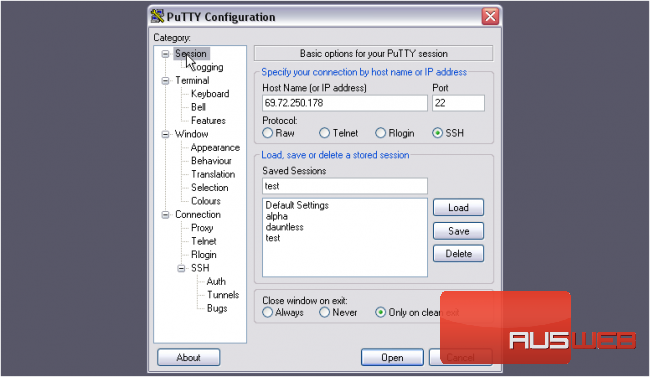

- #SYNCTERM SCROLLBACK BUFFER MAC OS#
- #SYNCTERM SCROLLBACK BUFFER SERIAL#
- #SYNCTERM SCROLLBACK BUFFER CODE#
You can control at time size of your history without any problems or limitation (it can be 1000000 kb of size, and scroll bar will handle all that crap without problems).

Copy + paste of text works very logical and easy (fast) for use. you have menu for the main shell window, which allow you to do many thinks like: reset terminal (when symbols on screen fucked up, you reset terminal and have "normal" terminal again).
#SYNCTERM SCROLLBACK BUFFER MAC OS#
Official ports are available for some Unix-like platforms, with work-in-progress ports to Classic Mac OS and Mac OS X, and unofficial ports have been contributed to platforms such as Symbian and Windows Mobile."Īlso as i pointed before, putty have many-many little-easy-to-use-and-nice-for-end-user-features, like: "PuTTY was originally written for Microsoft Windows, but it has been ported to various other operating systems. Did open ssh have normal screen buffer + history + all the crap ? (imho not) (open ssh can that ? i think openssh suck very much here.) Emulates most xterm, VT102 control sequences, as well as much of ECMA-48 terminal emulation.
#SYNCTERM SCROLLBACK BUFFER SERIAL#
Support for local serial port connections. Telnet, Rlogin and RAW TCP support (openssh can that ?) GUI it's only the "First start" for the settings. So while I'm all for getting a proper AmTelnet replacement, I'd really suggest to take our OpenSSH port as a support Telnet, Rlogin and RAW TCP ?
#SYNCTERM SCROLLBACK BUFFER CODE#
if a new release comes out, plant your GUI client code (and the AmigaOS diffs) over and be done with it. This should be by far easier than to port the heavily Windows biased code of PuTTY.Īdditionally it would have the benefit that you can easily stay in sync with new OpenSSH releases. If you have a look at the OpenSSH sourcecode it is prepared for different frontends, so all you'd need to do is take the source of our current OpenSSH port (don't know if its somewhere available for download, best ask ssolie for it as he ported it) and implement a GUI frontend instead of the commandline frontend which is in place now. Its just a convenient frontend for OpenSSH. I mean, PuTTY does basically nothing else. The script used to open the file is selected according to which category you selected the file from.Īll script rely on io-abduco to start and attach to session.Was somewhat asked before, but I want to bring it up again: Why do you want to port PuTTY instead of writing a GUI frontend for the already existing OpenSSH port?

The io-files module open the file with the editor. The io-music module runs on a single file, or all files from selected directory (artist, album. The io-man module runs mandoc(1) to display a man page. The io-search module acts like an interactive grep -r on the selected directory: it runs another iomenu with the content of every file, and while enter is pressed, it open the selected file at the selected line in background and prompt you again. The io-mail module runs mblaze(1) to prompt a mail (with iomenu(1) again) and display it in a pager. The io-irc module open a simple client for ii(1) with the ii-filter-3 script for prettier output. The io scripts: the main one is io, and for every (in bold white with a leading #), it will call an io- script with the path as an argument in an abduco(1) session, which means you can attach and detach it like tmux(1) (existing sessions are displayed at the top). Iomenu(1) is another dmenu(1) for the terminal, but with support for categories.


 0 kommentar(er)
0 kommentar(er)
